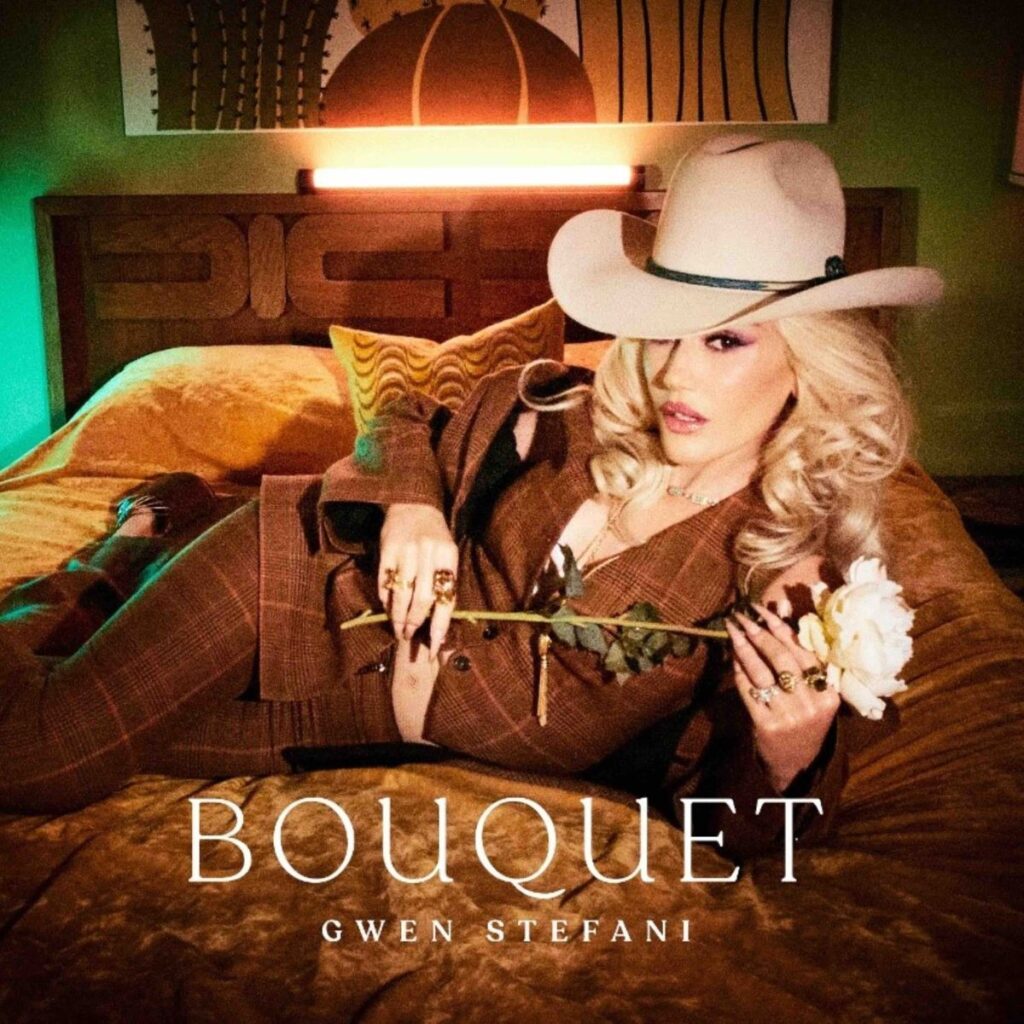
Gwen Stefani’s Bouquet Blossoms with Contentment
The iconic hitmaker returns on a bluesy note, blending diaristic storytelling with her distinct essence.
by Cam Delisle
Succeeding a blockbuster catalog of music and a handful of moments that shaped 2000s pop-culture is no easy feat, but that doesn’t appear to be Gwen Stefani’s objective on her fifth studio album, Bouquet. With flavours of 1970s pop-radio classics and yacht rock, Stefani delivers a sound that, despite her new Nashville influence, doesn’t read as overtly country. Instead, the genre is quietly tapped into across a quick 10 tracks, complementing the presence of her husband and “Purple Irises” collaborator, Blake Shelton. Although Shelton’s impact is undeniable, Bouquet feels like an honest and nuanced exploration of the artist and person that Stefani has become.
Bouquet is by no means Stefani’s first foray into experimenting with her sound—the former No Doubt frontwoman has always had a tendency to reimagine it. Her debut album, Love. Angel. Music. Baby., made waves as her valiant solo debut and departure from the band’s ska-punk roots, embracing a more polished, pop-driven sound that incorporated elements of hip-hop and electronic music. Later, her sophomore album, The Sweet Escape, saw her collaborating with The Neptunes (Chad Hugo and Pharrell Williams) on left-of-center contemporary pop. However, neither of the aforementioned projects possess the raw, impassioned songwriting and vocal prowess showcased on Bouquet.
On “Somebody Else’s,” the album’s uptempo opener, Stefani revisits the thematic terrain of 2004’s “Cool,” reclaiming agency over her narrative. On both tracks, she reflects on the ebbs and flows of a past relationship—no longer weighed down by it, but having found peace in its complexities; free from emotional strain, yet carrying a sense of acceptance. This spirit is a driving force across the record, clearly signaling that Stefani is in a profound state of contentment. As peers of a similar caliber all have gone, or will inevitably go through, the story conveyed on Bouquet is one of creating an album for herself first and foremost, with any resonance it may have with listeners coming second.
Laced with floral references, Bouquet emulates somewhat of a concept album. From the tender, warm “Empty Vase” to the soulful, spirited “Marigolds,” the album subtly nods to Stefani’s past while celebrating a present moment of gratitude and peace. Each track reflects her sense of fulfillment and the bliss of her current relationship. On “Pretty” and “Reminders,” she finds solace in her partner’s ability to hold her insecurities, grounding her in a sense of tranquility. That same tranquility permeates Bouquet, making it evidently clear that while Stefani is crafting music for herself, she’s also embracing a strikingly introspective sound that still carries the boldness and individuality she’s known for.





